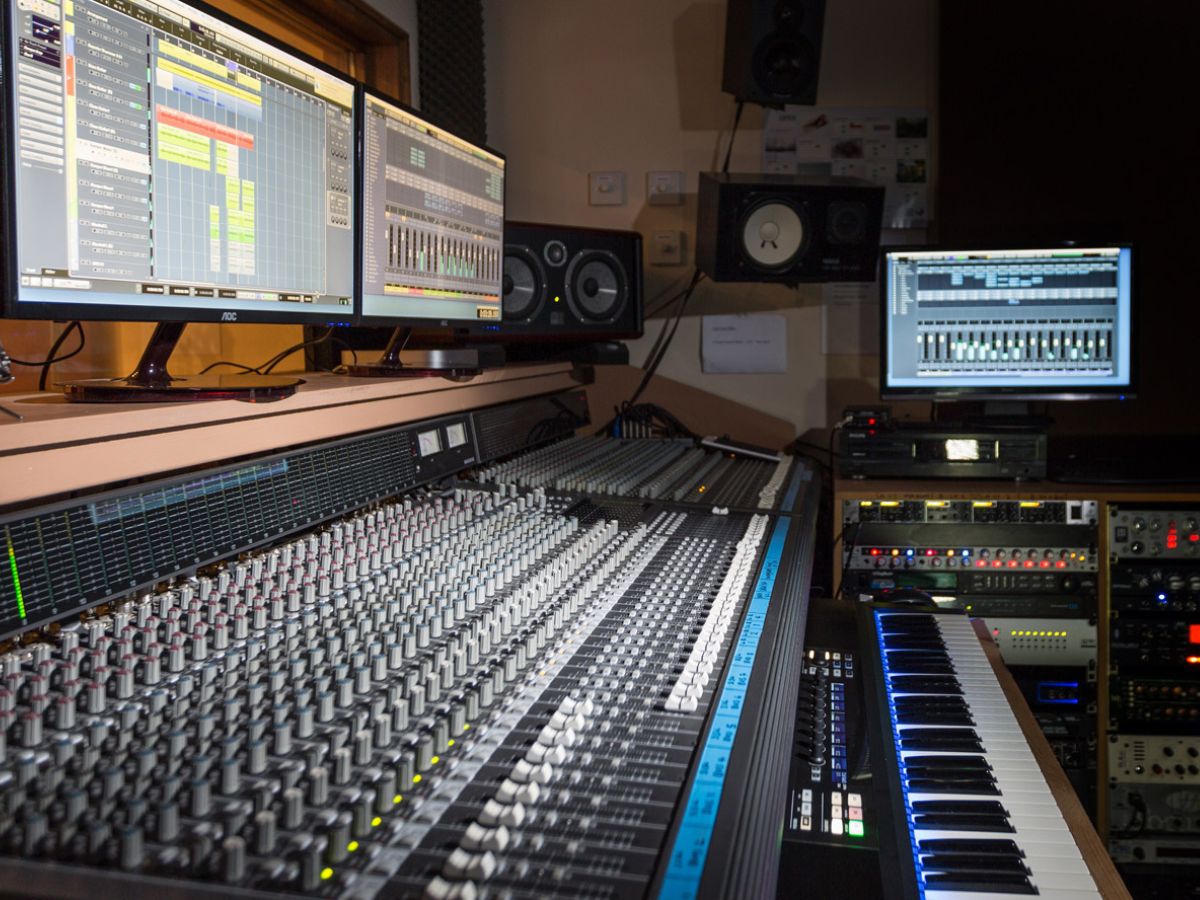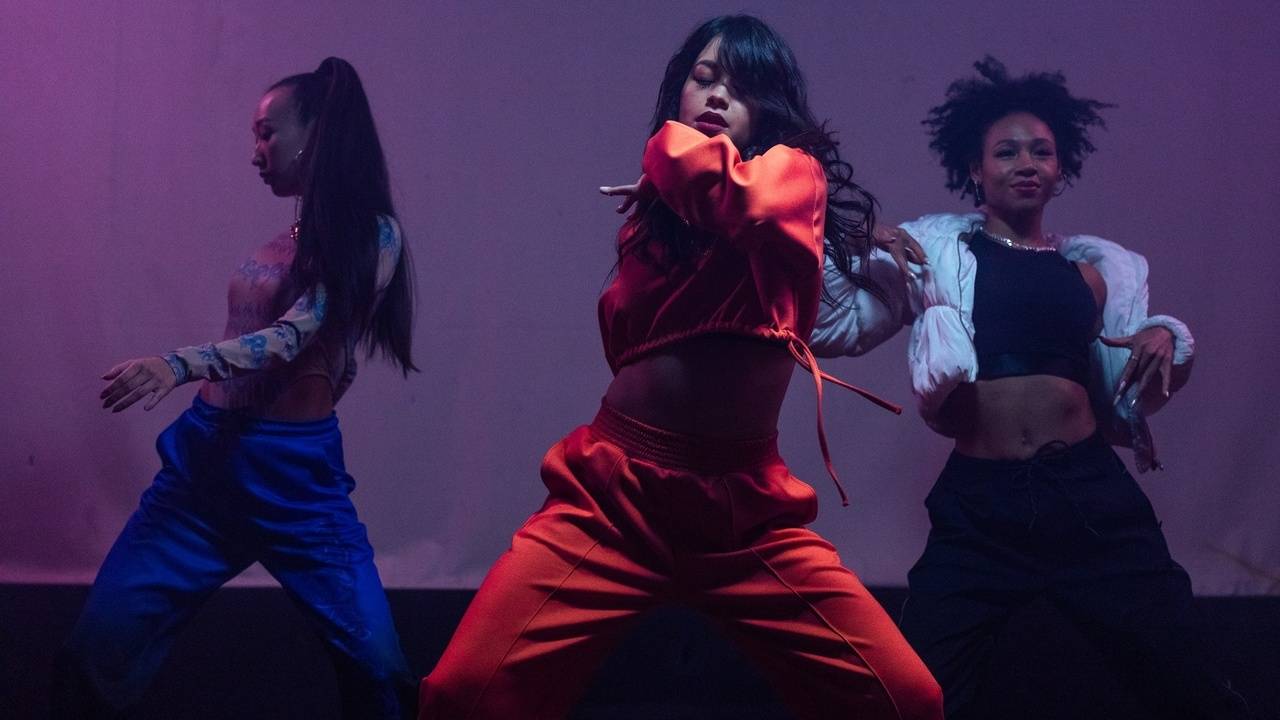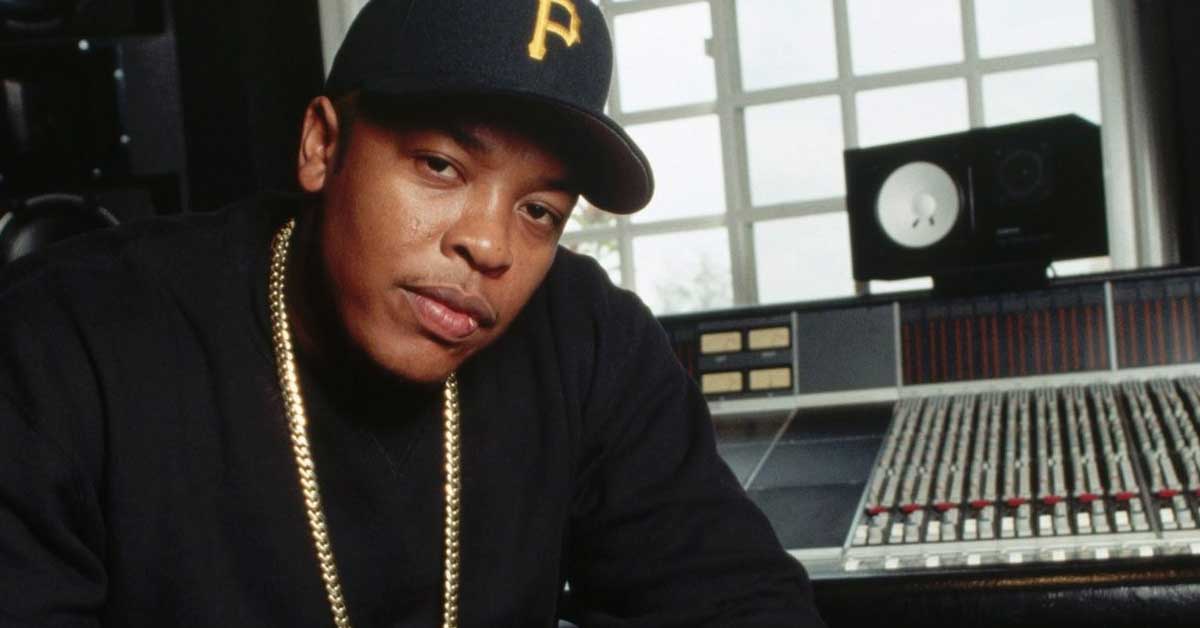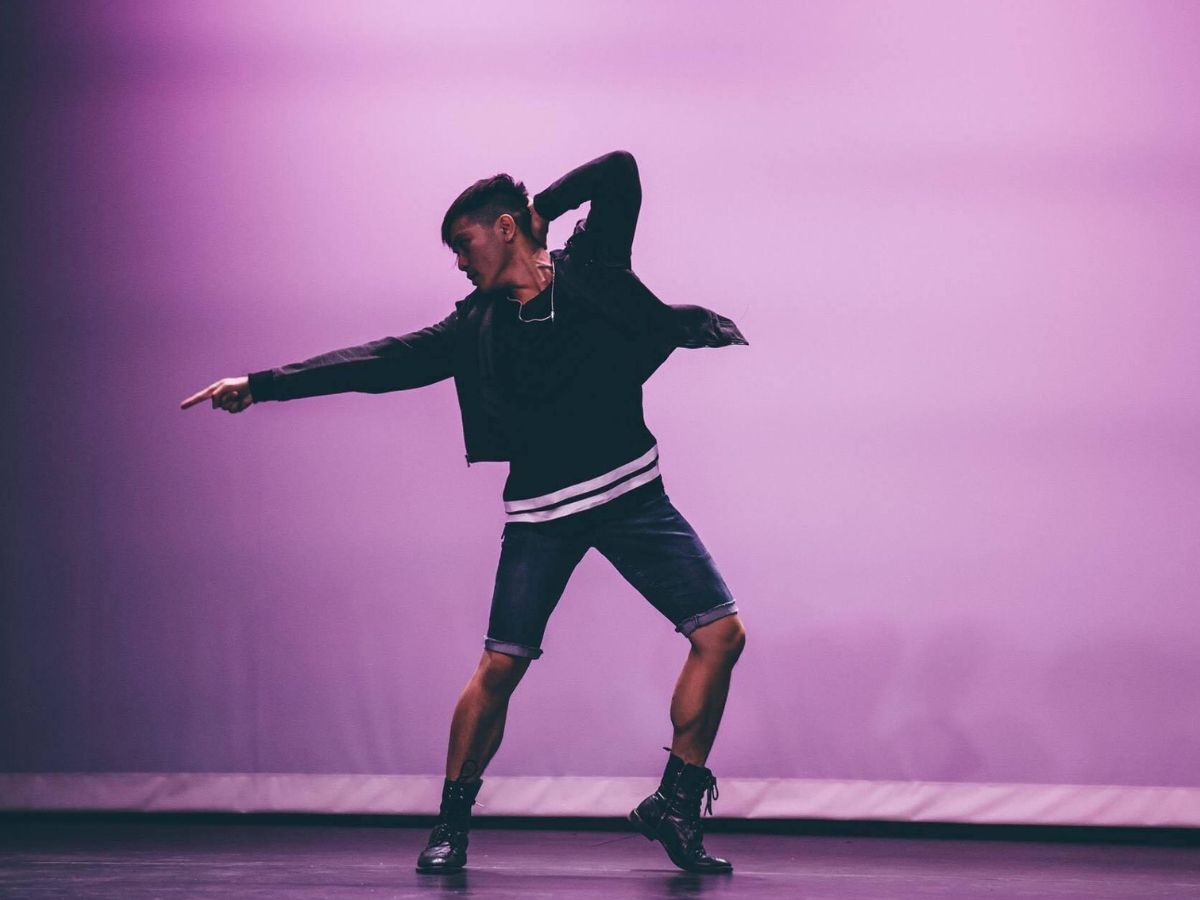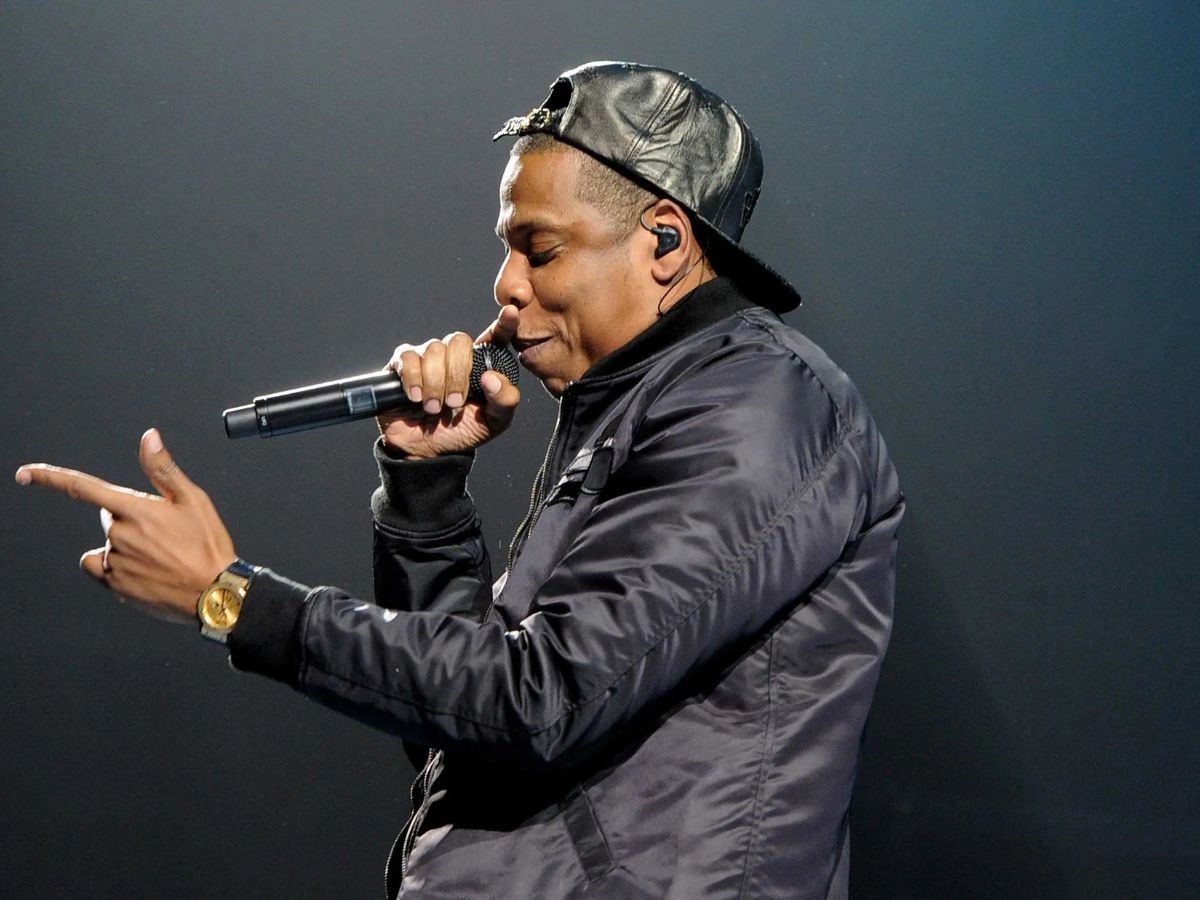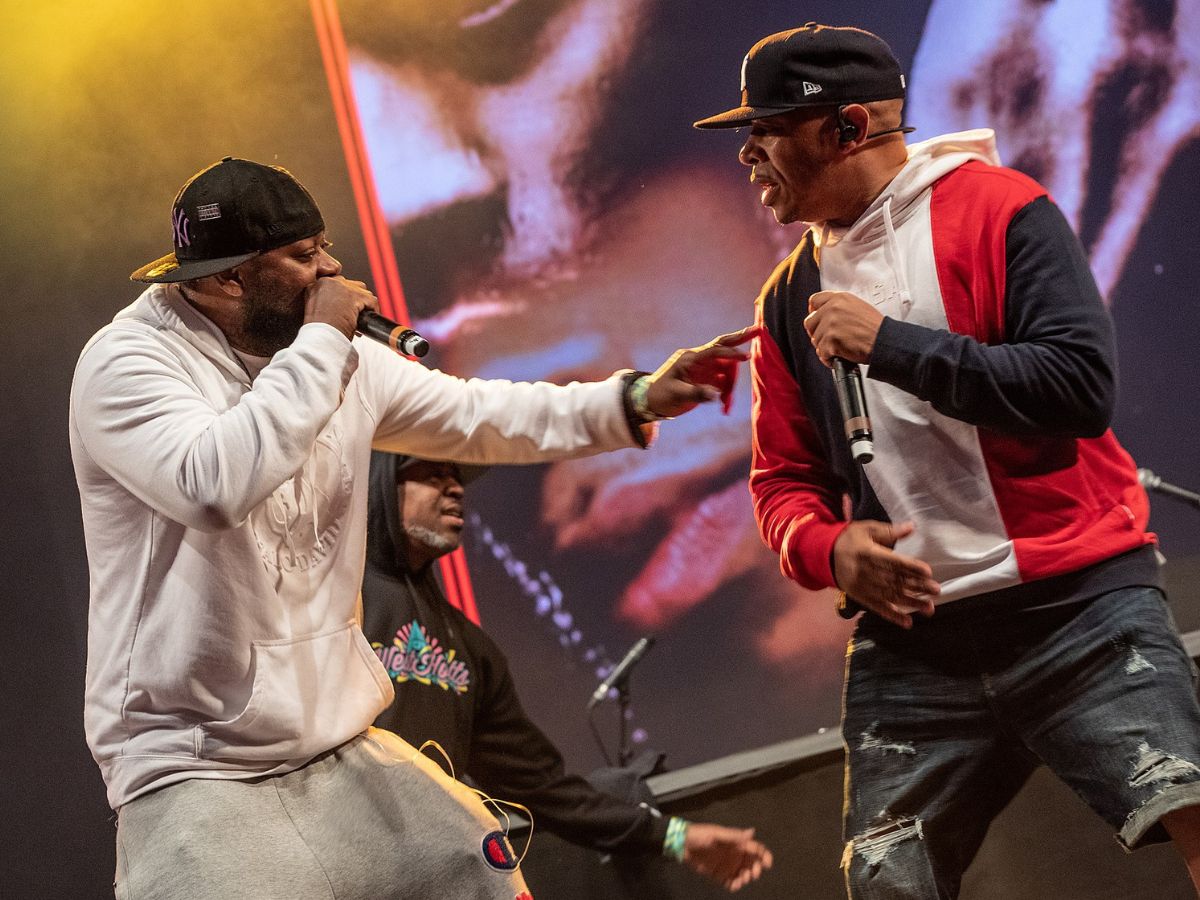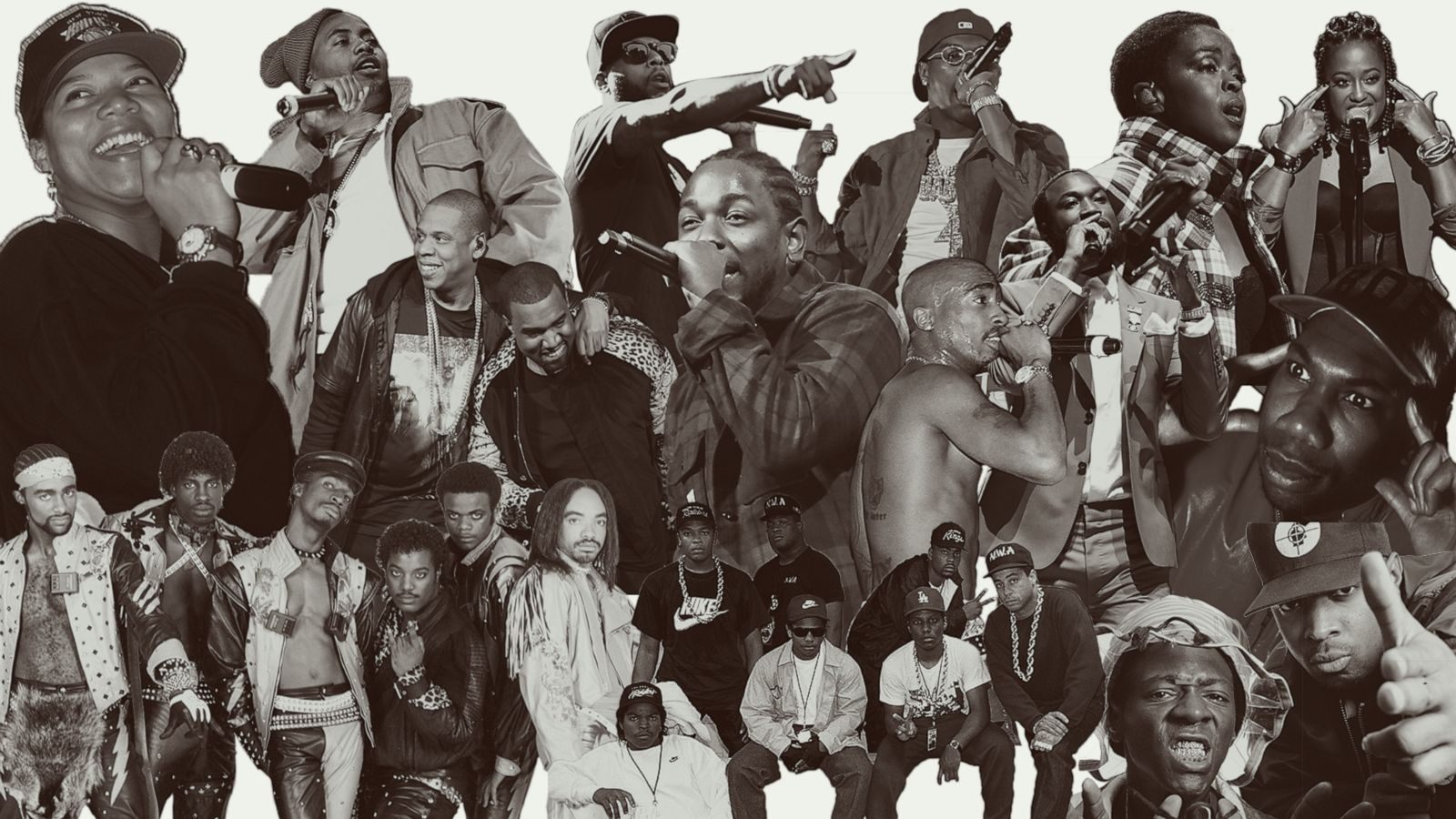

Hip Hop
How Has Hip Hop Affected Society
Modified: January 22, 2024
Explore the profound impact of hip hop on society and its cultural significance. Discover how this influential genre has reshaped music, art, fashion, and social activism.
(Many of the links in this article redirect to a specific reviewed product. Your purchase of these products through affiliate links helps to generate commission for AudioLover.com, at no extra cost. Learn more)
Table of Contents
- Introduction
- The Origins of Hip Hop
- Hip Hop’s Influence on Fashion
- Hip Hop’s Impact on Language and Slang
- Social and Political Commentary in Hip Hop
- Hip Hop’s Role in Breaking Down Racial Barriers
- Hip Hop’s Influence on Dance and Entertainment
- Hip Hop as a Vehicle for Empowerment and Activism
- Criticisms and Controversies Surrounding Hip Hop
- Conclusion
Introduction
Hip hop is more than just a music genre; it is a cultural movement that has had a profound impact on society. Originating in the 1970s in the Bronx, New York City, hip hop quickly spread across the United States and eventually became a global phenomenon. What started as a form of artistic expression within marginalized communities has evolved into a dominant force in popular culture, influencing various aspects of society.
From music and fashion to language and social activism, hip hop has left an indelible mark on the world. Its unique blend of rhythm, poetry, and storytelling resonates with people of all backgrounds, and its ability to reflect the realities of life has made it a powerful vehicle for expression and social commentary.
This article explores how hip hop has shaped society and examines its influence in different areas. From the origins of the genre to its role in breaking down racial barriers, we will delve into the various ways in which hip hop has impacted culture, language, fashion, dance, and activism.
It is essential to recognize that hip hop is not without its controversies and criticisms. While it has served as a platform for empowerment and change, it has also faced backlash for promoting negative stereotypes and materialistic values. As we explore the effects of hip hop, we will address both the positive contributions and the challenges associated with the genre.
Overall, hip hop has transcended its roots in the Bronx to become a global cultural phenomenon. Its influence can be seen and heard in every corner of the globe, and its ability to connect people through music and shared experiences is unmatched. Join us as we uncover the impact of hip hop on society and delve into the fascinating world of this influential cultural movement.
The Origins of Hip Hop
Hip hop emerged in the 1970s as an innovative form of artistic expression within African-American and Latinx communities in the Bronx, New York. It originated as a response to the social and economic challenges faced by these communities, serving as a medium for self-expression, cultural pride, and community solidarity.
One of the key elements of hip hop culture is DJing, where DJs would mix and blend different music tracks, creating a unique sound and atmosphere. The legendary DJ Kool Herc is often credited as the pioneer of hip hop, hosting parties where he would play funk and soul records while emphasizing the rhythm breaks, known as the “breakbeats” – the foundation of early hip hop music.
Another vital component of hip hop is MCing or rapping. The MC, standing for “Master of Ceremonies,” would deliver rhythmic and poetic verses over the DJ’s beats, providing a form of storytelling and self-expression. Early MCs like Grandmaster Flash, Afrika Bambaataa, and The Sugarhill Gang paved the way for the genre’s lyrical evolution, solidifying rap as a defining element of hip hop culture.
B-boying, or breakdancing, became another integral aspect of hip hop culture. B-boys and B-girls would showcase their skills through dynamic and acrobatic dance moves, battling each other to prove their mastery and creativity. Breaking, with its high-energy and stylized moves, became a physical expression of the music and a visual representation of hip hop culture.
Graffiti art became the fourth pillar of hip hop, visually representing the creativity and rebellious spirit of the culture. Graffiti artists would paint colorful and intricate designs on train cars and walls, using their art as a form of visual storytelling and reclaiming public spaces.
Together, these four elements – DJing, MCing, b-boying, and graffiti art – formed the foundation of hip hop culture. They provided an outlet for creative expression, giving voice to marginalized communities and sparking a cultural revolution.
The origins of hip hop were rooted in the struggles and experiences of the Bronx’s African-American and Latinx communities. It provided a platform for these communities to express themselves, highlight social issues, and create a sense of unity and empowerment. As the movement gained momentum, it spread to other cities in the United States and eventually reached global prominence, shaping the future of popular culture.
Hip Hop’s Influence on Fashion
One of the most prominent aspects of hip hop culture is its significant influence on fashion. From the early days of the genre to the present, hip hop has consistently pushed boundaries and defined trends in the fashion world.
In the 1980s, hip hop fashion was characterized by its bold and vibrant style. Artists like Run-D.M.C and LL Cool J popularized the trend of wearing oversized and colorful tracksuits, Kangol hats, gold chains, and Adidas sneakers, creating an iconic look that became synonymous with the genre.
As the 1990s rolled in, hip hop fashion continued to evolve, with a shift towards more streetwear-inspired outfits. Baggy jeans, oversized t-shirts, and sportswear brands like Tommy Hilfiger and FUBU became staples in hip hop fashion. Artists like Tupac Shakur and The Notorious B.I.G became style icons, influencing a generation with their distinct fashion choices.
In the late 1990s and early 2000s, hip hop embraced a more glamorous and luxurious aesthetic. The rise of bling culture brought forth a wave of flashy jewelry, with artists adorning themselves with large and elaborate diamond-encrusted chains, rings, and watches. Designer brands like Gucci and Versace became synonymous with hip hop opulence.
As the 2000s progressed, hip hop fashion began to embrace a more eclectic and diverse approach. Artists like Pharrell Williams and Kanye West introduced a fusion of high fashion and streetwear, creating a new wave of style that combined luxury brands with independent and emerging designers.
One of the significant shifts in hip hop fashion in recent years has been the rise of gender-neutral and inclusive styles. Artists like Janelle Monáe and Young Thug have challenged traditional notions of gendered clothing, embracing androgynous looks and pushing the boundaries of fashion norms.
Today, hip hop fashion continues to evolve and make a statement. Athleisure, graphic streetwear, and designer collaborations have become prevalent. Artists and influencers use their personal style as a form of self-expression and a way to connect with their audience.
Moreover, hip hop’s influence on fashion extends beyond the artist’s wardrobe. It has inspired and shaped mainstream fashion trends, with elements of hip hop style being incorporated into high-end runways and street fashion worldwide.
Overall, hip hop’s impact on fashion cannot be understated. It has shaped trends, challenged societal norms, and provided a platform for self-expression through clothing. From streetwear to luxury, hip hop fashion continues to influence and inspire the world of style.
Hip Hop’s Impact on Language and Slang
One of the most significant contributions of hip hop to popular culture is its profound impact on language and slang. Hip hop has been instrumental in the creation of new words, phrases, and linguistic styles that have permeated mainstream language and become part of everyday speech.
In its early years, hip hop introduced a vast array of slang and vernacular from the streets of urban communities. Artists like Rakim, Big Daddy Kane, and Snoop Dogg showcased their lyrical prowess by incorporating unique wordplay, clever metaphors, and regional slang into their lyrics.
During the 1980s and 1990s, hip hop slang started gaining recognition and popularity beyond the genre. Phrases like “dope,” “fly,” and “fresh” became synonymous with coolness and style. These catchy terms entered the lexicon of the masses, transcending racial and cultural boundaries.
One of the most notable contributions of hip hop to language is the concept of “wordplay.” Hip hop artists are known for their ability to manipulate words, often using double entendres, puns, and creative metaphors to convey their messages. This wordplay has not only shaped the way lyrics are written but has also influenced modern poetry and literature.
Moreover, hip hop has been at the forefront of introducing regional and cultural slang to a wider audience. Artists from different parts of the United States, such as the East Coast, West Coast, and the South, have brought their distinct linguistic styles to the forefront. Terms like “yo,” “homie,” “shorty,” and “on fleek” have become mainstream, thanks to their usage in hip hop songs.
Additionally, hip hop has played a vital role in the evolution of African-American Vernacular English (AAVE). AAVE, also known as Ebonics, is a dialect spoken by many African-Americans, and hip hop acts as a vehicle for its preservation and celebration. Phrases like “fo’ shizzle,” “word up,” and “for real” have become synonymous with hip hop culture and have heavily influenced mainstream language.
Furthermore, hip hop has revolutionized storytelling through its use of narrative and storytelling techniques. Artists like Kendrick Lamar and Nas have crafted intricate and poetic lyrics that communicate powerful stories and social commentary. Through their storytelling abilities, hip hop artists have captured the realities of the streets, giving a voice to those marginalized by mainstream society.
It is important to note that the impact of hip hop on language and slang is not without controversy. Critics argue that hip hop’s use of derogatory language, profanity, and explicit content can perpetuate negative stereotypes and contribute to the degradation of language. However, proponents of hip hop argue that it mirrors the reality of marginalized communities and serves as a form of artistic expression.
Regardless of the debates surrounding it, hip hop’s impact on language and slang cannot be denied. It has introduced new words, phrases, and linguistic styles to the world, showcasing the power of music and culture to shape and influence the way we communicate.
Social and Political Commentary in Hip Hop
Hip hop has long been recognized for its ability to provide a platform for social and political commentary. Through its powerful lyrics and storytelling, hip hop has shed light on a wide range of societal issues, including racism, poverty, inequality, and systemic injustice.
From its early days, hip hop artists like Public Enemy and N.W.A. used their music as a tool to address the social and political challenges faced by marginalized communities. They fearlessly tackled police brutality, racial profiling, and the unequal treatment of African-Americans in their lyrics, sparking conversations and demanding change.
Over the years, hip hop has continued to be a voice for the voiceless and a rallying cry for social justice. Artists such as Kendrick Lamar, J. Cole, and Common have emerged as powerful advocates for equality and are known for their thought-provoking lyrics that explore the complexities of race, identity, and the human experience.
Moreover, hip hop has been a catalyst for raising awareness about various social issues. It has addressed topics such as immigration, the war on drugs, educational disparities, and economic inequality. By shedding light on these issues, hip hop has inspired dialogue and motivated individuals to take action and work towards effecting positive change.
Additionally, hip hop has become a platform for artists to express their personal experiences and struggles. It serves as a mirror reflecting the realities of life in marginalized communities, offering a glimpse into the challenges faced by those living in poverty, dealing with violence, or navigating a broken criminal justice system.
Furthermore, hip hop has been instrumental in promoting community engagement and civic participation. Artists have used their platforms to encourage voting, advocate for social movements, and support grassroots initiatives. Hip hop events and concerts often serve as spaces for raising awareness and fostering unity among diverse groups of people.
It is important to note that while hip hop has been a vehicle for social and political commentary, not all artists and songs within the genre share the same perspectives or ideologies. Hip hop encompasses a wide range of voices and perspectives, and artists are free to express their individual beliefs and opinions.
The power of hip hop lies in its ability to ignite conversations, challenge the status quo, and inspire change. Whether through conscious lyrics, extensive collaborations, or community activism, hip hop continues to be a powerful force in shaping social and political discourse.
Hip Hop’s Role in Breaking Down Racial Barriers
Hip hop has played a crucial role in breaking down racial barriers and fostering unity among diverse communities. From its inception, the genre has provided a space for people of different backgrounds to come together, share their stories, and find common ground.
In the early days of hip hop, the genre served as a unifying force for African-American and Latinx communities in the Bronx, who were marginalized and faced systemic oppression. It provided a platform for these communities to express their struggles, celebrate their culture, and assert their identities.
As hip hop gained popularity and spread across the United States, it transcended racial boundaries. It became a voice for not only minority communities but also for individuals from various backgrounds who resonated with the genre’s message of resilience, creativity, and social change.
Hip hop’s ability to bring diverse people together is exemplified through collaborations between artists of different races and backgrounds. These collaborations have not only produced groundbreaking and innovative music but have also been symbols of unity and solidarity.
Moreover, hip hop’s influence on popular culture has helped challenge stereotypes and preconceived notions about race. Through their music, artists have been able to defy racial expectations and present a more nuanced and authentic representation of themselves and their communities.
Hip hop’s global reach and influence have also played a significant role in fostering cross-cultural understanding. The genre has transcended national boundaries, with artists from different countries and continents embracing hip hop and infusing it with their own cultural influences.
By breaking down cultural barriers, hip hop has encouraged dialogue and collaboration, allowing artists and fans from diverse backgrounds to connect and learn from one another. This has contributed to a greater understanding and appreciation of different cultures, ultimately helping to dismantle racial stereotypes and prejudices.
Furthermore, hip hop has been instrumental in providing a platform for conversations about race and inequality. Artists have used their music to address social issues and to highlight the experiences of marginalized communities, fostering empathy and understanding among listeners.
While hip hop has made significant strides in breaking down racial barriers, it is important to acknowledge that the genre is not without its challenges. Issues of appropriation, cultural commodification, and misrepresentation sometimes arise within the hip hop industry. However, the genre’s potential to build bridges and inspire change should not be undermined.
Overall, hip hop’s impact on breaking down racial barriers is undeniable. Through its music, cultural influence, and message of unity, hip hop has helped create a more inclusive and interconnected world, where people from different backgrounds can come together and celebrate their shared humanity.
Hip Hop’s Influence on Dance and Entertainment
Hip hop’s influence on dance and entertainment has been revolutionary, shaping the way we move, express ourselves, and experience music. From breakdancing to choreography, hip hop has transformed the dance landscape and continues to have a profound impact on the entertainment industry.
One of the most significant contributions of hip hop to dance is breakdancing, also known as b-boying or b-girling. Breakdancing emerged alongside hip hop music in the 1970s and quickly gained worldwide recognition for its acrobatic moves and dynamic style. The explosive energy and creativity of breakdancing captivated audiences, showcasing a new form of dance that incorporated elements of athleticism, improvisation, and self-expression.
As hip hop music evolved, so did the accompanying dance styles. Choreographed routines became more prevalent, merging hip hop with other dance genres such as jazz, contemporary, and ballet. Hip hop choreography, with its intricate rhythmic patterns, isolations, and expressive movements, has become a staple in music videos, live performances, and even competitive dance shows.
Hip hop dance crews and competitions, such as the famous “Battle of the Year” and “World of Dance,” have provided platforms for dancers to showcase their skills and creativity. These events have not only propelled the careers of many dancers but have also popularized hip hop dance as a legitimate art form and paved the way for the professionalization of hip hop dance culture.
Beyond its impact on dance styles, hip hop has revolutionized the entertainment industry as a whole. Artists like Beyoncé, Usher, and Chris Brown have incorporated intricate hip hop-inspired choreography into their performances, enhancing the visual spectacles and creating unforgettable moments on stage.
Furthermore, hip hop has influenced the aesthetics and production values of music videos. From dynamic camera movements to urban settings and street-inspired fashion, hip hop has brought a fresh and vibrant visual approach to the music video medium.
In addition to dance and music videos, hip hop has influenced other forms of entertainment, including movies and television. Films like “Breakin’,” “Step Up,” and “You Got Served” have showcased the artistry and athleticism of hip hop dance, further popularizing the genre and inspiring new generations of dancers and performers.
Television shows like “America’s Best Dance Crew” and “So You Think You Can Dance” have also played a significant role in highlighting the talents of hip hop dancers, introducing audiences to different styles of the genre and sparking a broader appreciation for hip hop dance culture.
Overall, hip hop’s influence on dance and entertainment is far-reaching. It has revolutionized the way we move, choreograph, and experience live performances. With its vibrant energy, innovative moves, and ability to captivate audiences, hip hop has firmly established itself as a dominant force in the world of dance and entertainment.
Hip Hop as a Vehicle for Empowerment and Activism
Hip hop has emerged as a powerful vehicle for empowerment and activism, providing a platform for artists to address social issues, inspire change, and advocate for justice. Through its lyrics, performances, and community engagement, hip hop has become a catalyst for raising awareness, promoting equality, and empowering marginalized communities.
One of the ways hip hop promotes empowerment is through its emphasis on self-expression and individuality. Hip hop encourages artists to share their unique stories and perspectives, allowing them to reclaim their narratives and challenge societal norms. This empowerment resonates with listeners, who find solace and inspiration in the honest and relatable lyrics of hip hop songs.
Moreover, hip hop has served as a medium for amplifying social and political issues. Artists use their music to shed light on racial inequality, police brutality, economic disparities, and other forms of systemic injustice. By addressing these issues, hip hop empowers communities to confront and challenge oppressive structures, advocating for equal rights and social change.
Hip hop has also played a significant role in giving a voice to the voiceless. It has provided a platform for artists from underserved communities to share their experiences and shed light on the struggles they face. Through their music, these artists empower others facing similar challenges, inspiring them to overcome adversity and create change.
Furthermore, hip hop has been pivotal in fostering community engagement and activism. Artists organize and participate in events, benefit concerts, and social initiatives that address social issues and support marginalized communities. They use their platform to raise funds, provide resources, and create opportunities for those in need, helping to uplift and empower the most vulnerable in society.
Hip hop’s influence also extends to youth empowerment and education. Many hip hop artists establish programs and initiatives that promote arts education, mentorship, and activism among young people. These initiatives use hip hop as a tool to inspire and empower the next generation, encouraging them to find their voices and become agents of change.
Furthermore, hip hop’s influence on fashion, language, dance, and entertainment provides opportunities for individuals to express their own unique identities, challenging societal norms and embracing diversity. This empowerment allows individuals to authentically represent themselves, fostering a sense of self-pride and confidence.
While critics may argue that hip hop glorifies materialism or perpetuates negative stereotypes, it is important to recognize that the genre’s true essence lies in its ability to empower and uplift. Hip hop confronts issues head-on, creates a space for marginalized voices, and inspires individuals to come together and make a difference.
As hip hop continues to evolve, its role in empowerment and activism remains at the forefront. Through its authenticity, cultural influence, and commitment to social justice, hip hop will continue to empower individuals, challenge the status quo, and inspire positive change.
Criticisms and Controversies Surrounding Hip Hop
Hip hop, despite its widespread popularity and cultural influence, has not been immune to criticisms and controversies. The genre has faced scrutiny and backlash for various reasons, ranging from explicit content and the promotion of materialistic values to misogyny and perpetuation of negative stereotypes.
One of the main criticisms directed at hip hop is its use of explicit and violent lyrics. Some argue that the graphic and explicit content in certain songs contributes to a culture of violence and can have a negative influence on impressionable individuals, particularly young listeners. Critics contend that such content perpetuates a cycle of aggression and impacts societal norms.
Another point of contention is the portrayal of women in hip hop. Critics argue that many mainstream hip hop songs often objectify and degrade women, portraying them as mere objects of sexual desire. This portrayal can reinforce harmful gender stereotypes and contribute to the marginalization and mistreatment of women in society.
Materialism is another aspect that draws criticism in hip hop. The glorification of wealth, luxury lifestyles, and excessive spending is prevalent in many songs, often focusing on material possessions as a measure of success. Critics argue that this emphasis on material wealth perpetuates consumerism and places disproportionate value on superficial gains.
Hip hop has also faced allegations of perpetuating negative stereotypes, particularly concerning race and ethnicity. Some argue that certain lyrics and imagery reinforce stereotypes about African-American and Latinx communities, perpetuating biases and inhibiting the progress towards racial equality.
In addition to these criticisms, hip hop has been confronted with controversies surrounding beefs and disputes between artists. While rivalries may be considered a part of the competitive nature of hip hop, they can sometimes escalate to violence and impact the culture negatively. Such incidents undermine the positive potential of hip hop as a tool for empowerment and social change.
It is important to note that while these criticisms warrant consideration and discussion, they do not represent the entirety of hip hop or the diverse perspectives within the genre. Many hip hop artists use their platform to address these criticisms, challenge societal norms, and advocate for positive change.
Moreover, hip hop has also been a vehicle for self-reflection and growth within the culture. Artists have recognized the criticisms aimed at hip hop and have actively worked to address them. Many use their music to promote messages of upliftment, social awareness, and inclusivity, counteracting the negative aspects associated with the genre.
Ultimately, the criticisms and controversies surrounding hip hop highlight the need for critical engagement and conscious consumption of the genre. By encouraging dialogue, promoting positive alternatives, and supporting artists who use their platform responsibly, hip hop can evolve and continue to have a positive impact on society.
Conclusion
Hip hop has undeniably left a lasting imprint on society, transcending its origins as a music genre to become a cultural movement with far-reaching impact. From its beginnings in the Bronx to its global prominence today, hip hop has influenced fashion, language, dance, and entertainment, while serving as a platform for empowerment, social commentary, and activism.
Through its powerful lyrics and storytelling, hip hop has shed light on social issues, challenged systemic injustice, and given a voice to marginalized communities. It has broken down racial barriers, fostering unity and cross-cultural understanding. Hip hop has empowered individuals to express themselves authentically, inspiring confidence and pride.
However, hip hop is not without its complexities and controversies. It has faced criticisms for explicit content, objectification of women, promoting materialism, and perpetuating negative stereotypes. It is crucial to engage in critical conversations about these issues and to support artists who use their platform responsibly.
In conclusion, hip hop has had a profound and multifaceted impact on society. Its influence manifests in various forms, from the fashion choices we make to the slang we use, from the dances we perform to the conversations we have. Hip hop has broken down boundaries, provided a voice for the marginalized, and sparked cultural revolutions.
As we continue to navigate the ever-evolving landscape of hip hop, it is important to recognize and appreciate its transformative power. It is a vehicle for self-expression, a catalyst for social change, and a mirror reflecting the complexities of our world. By embracing the positive aspects of hip hop and maintaining a critical eye towards its challenges, we can fully appreciate and harness the power of this extraordinary cultural movement.


